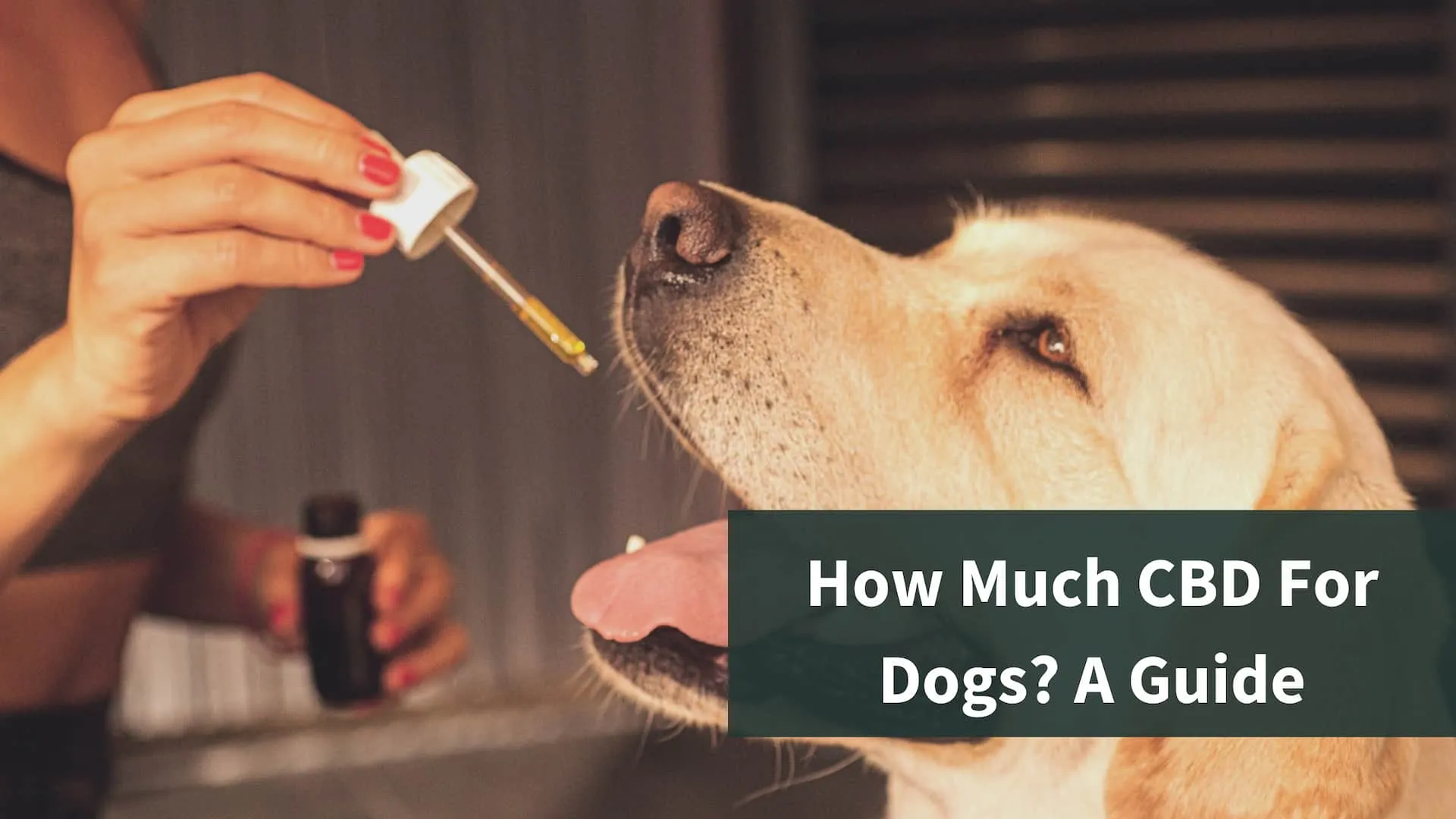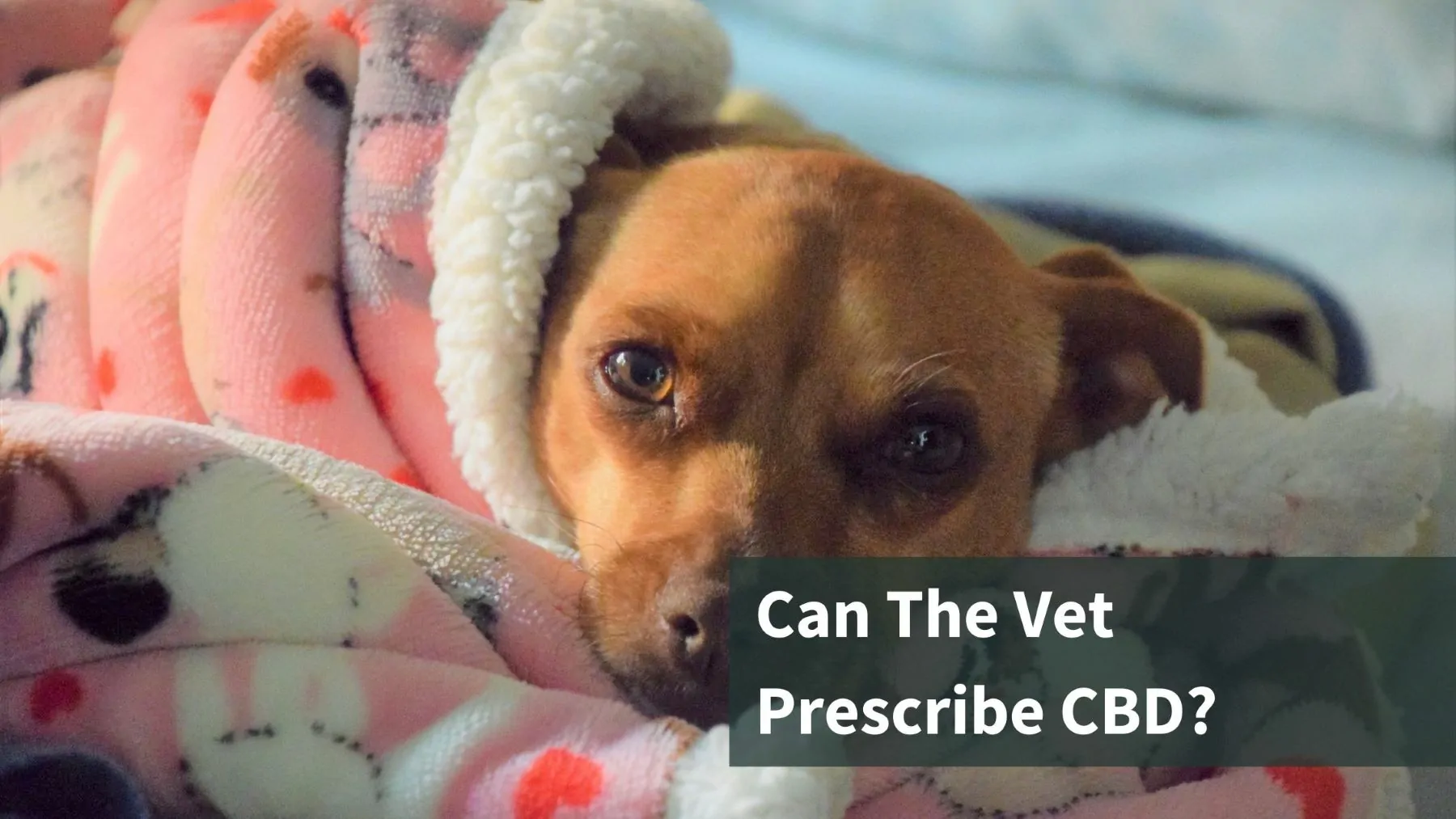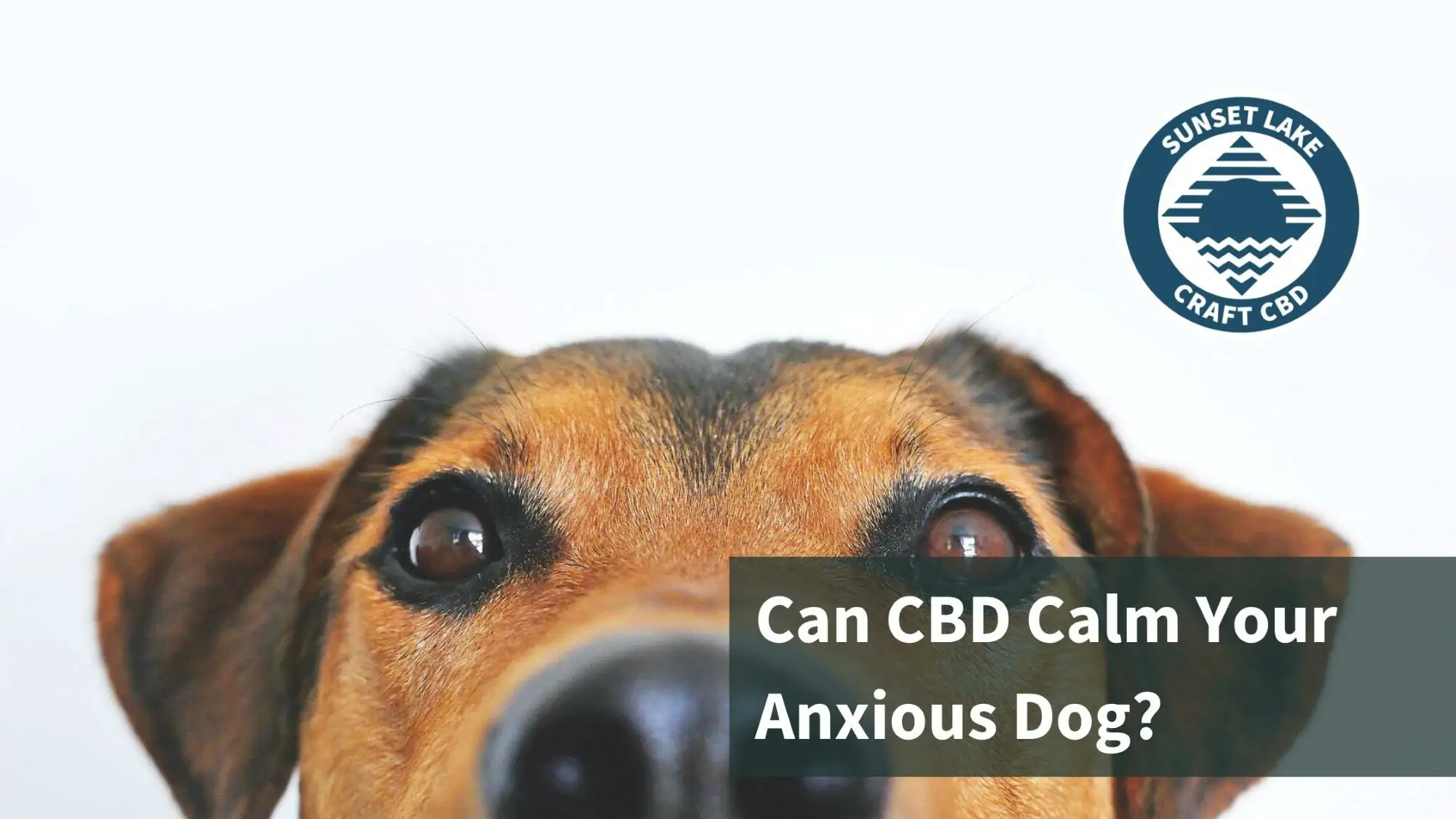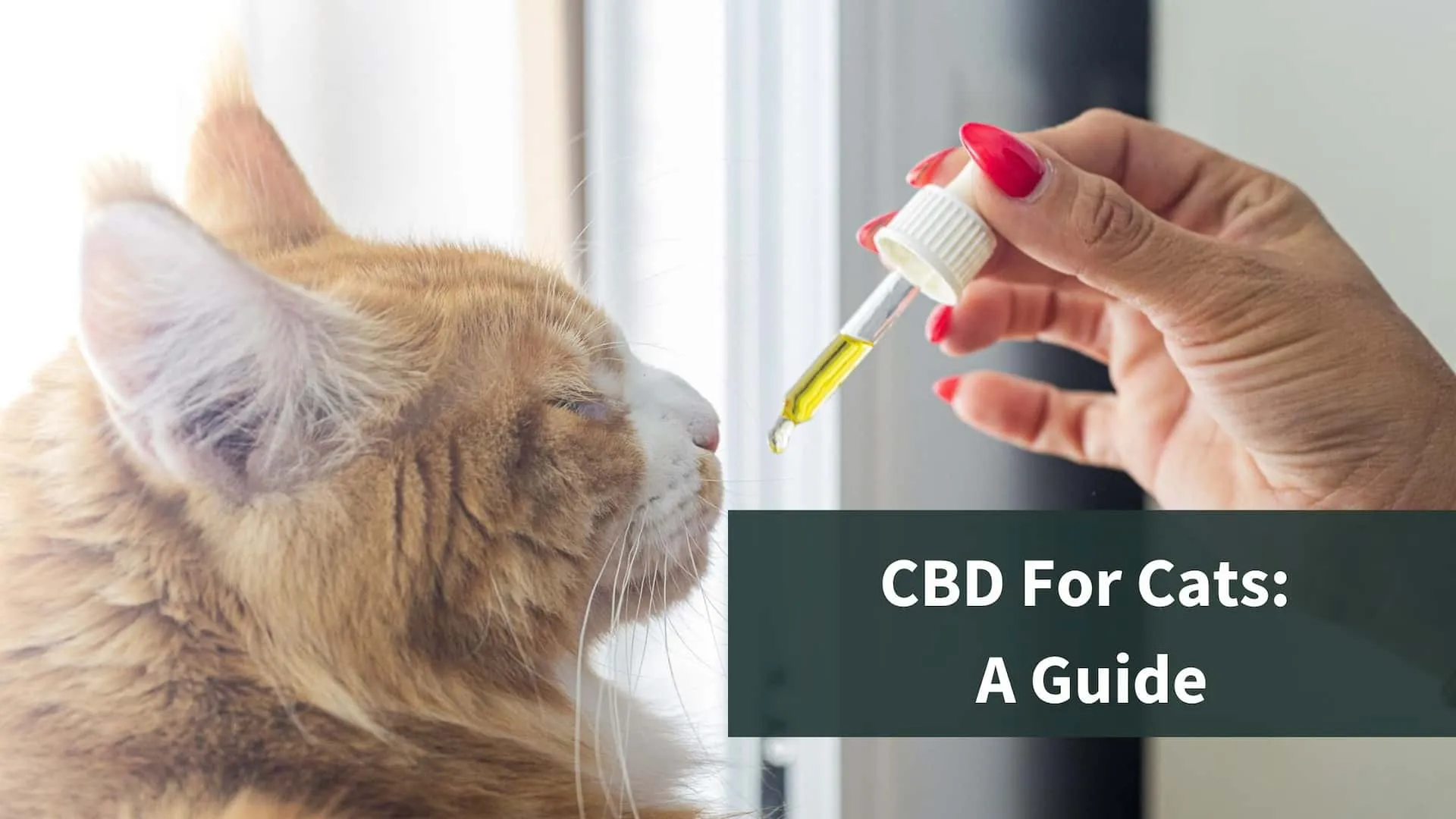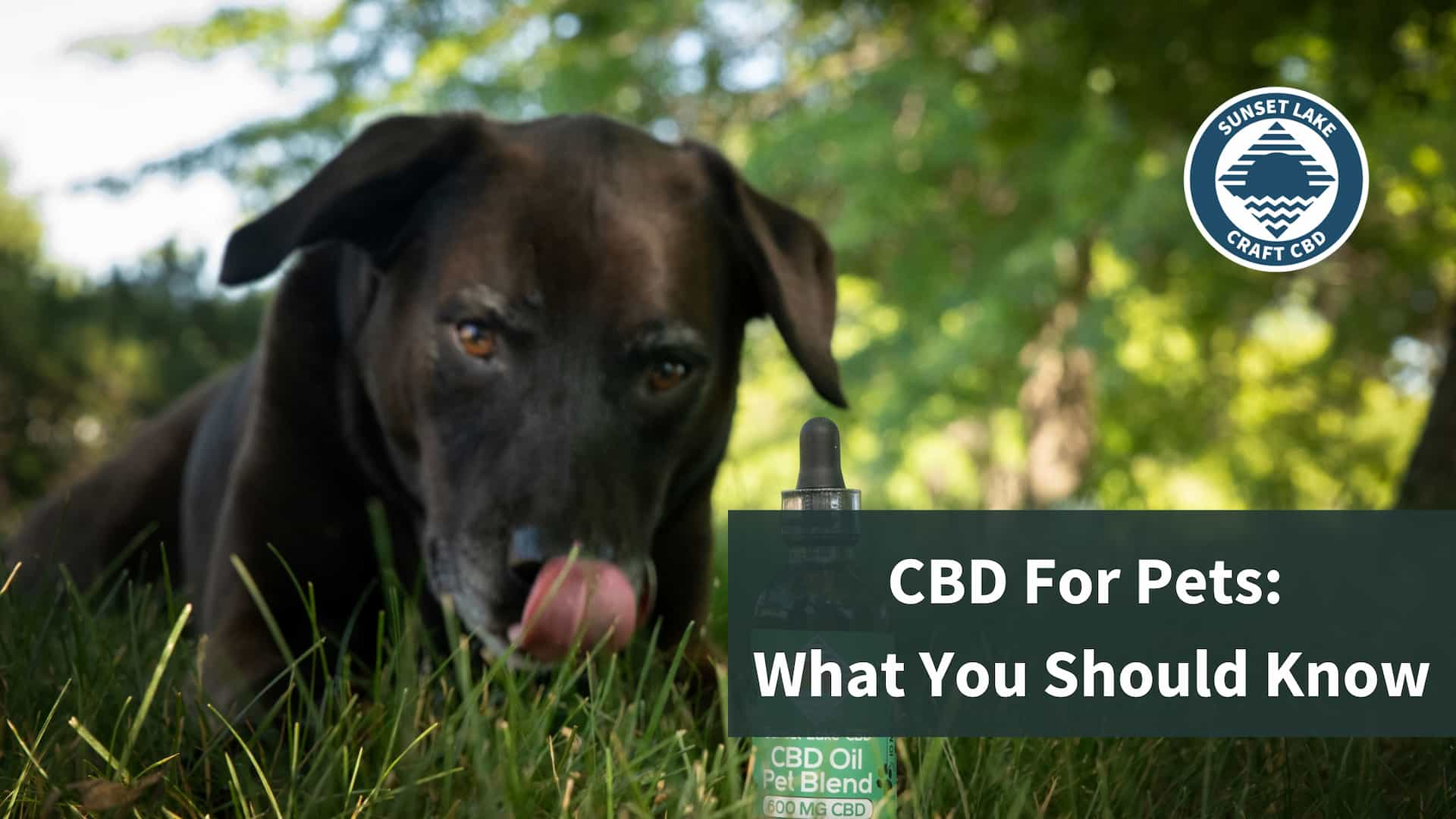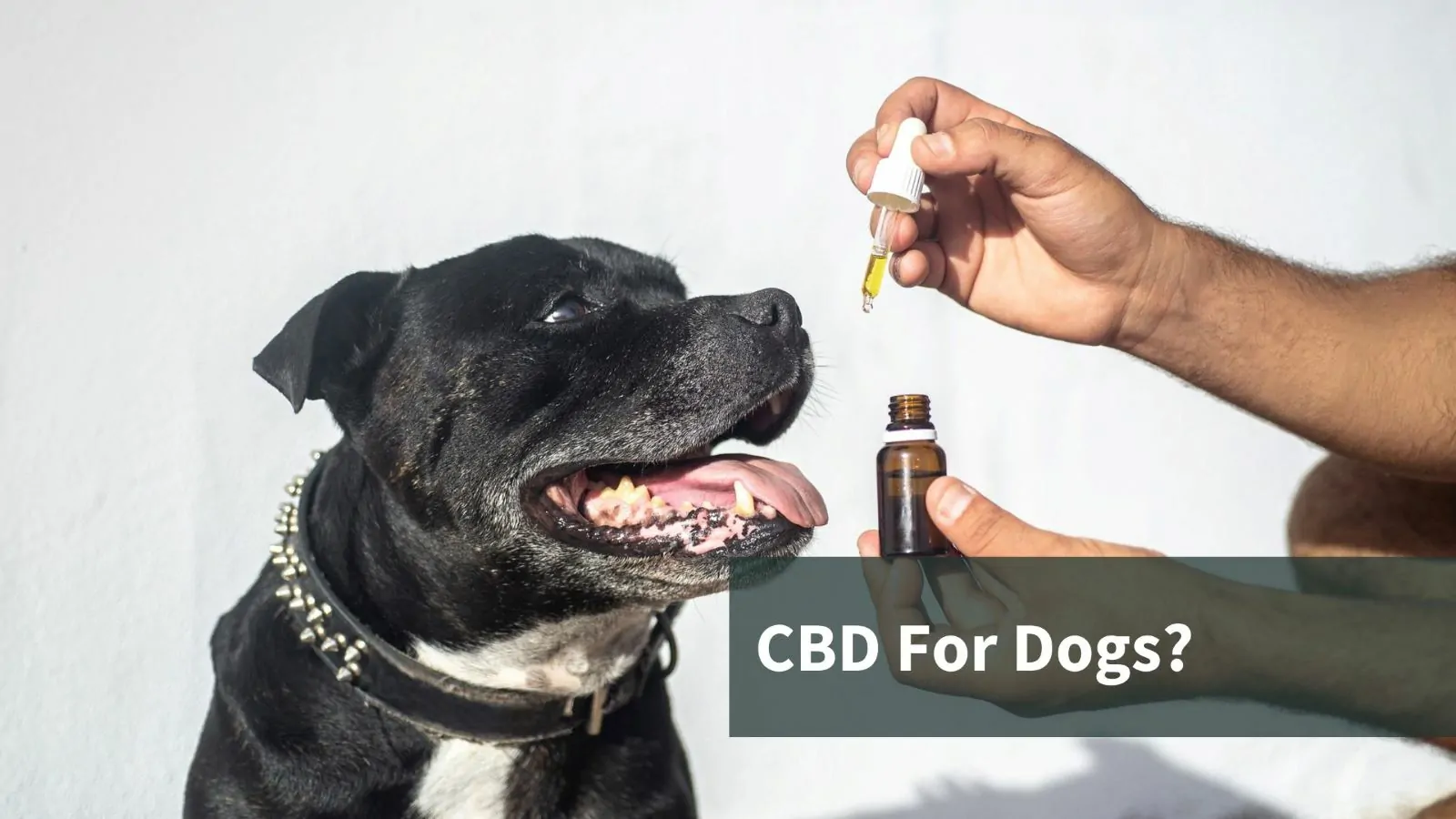
Key Takeaways
- Early research suggests that CBD may be able to help dogs with chronic conditions like epilepsy, pain-related mobility issues, and stress.
- We recommend starting your dog on 1-2mg of CBD per 10 lbs of their weight. However, only your veterinarian will be able to give you a more personalized recommendation for your dog.
- Newer research suggests that longer-term dosing of CBD for dogs is relatively safe, provided you follow dosage amount guidance.
Table of Contents
With the rise of CBD’s popularity among us humans, is it any wonder that there’s growing interest in CBD for dogs? Pet wellness trends come and go, but CBD has some staying power. Don’t think so? Nearly half of American veterinarians say they’re comfortable bringing up CBD with patients now. 1
In this post, we’ll talk about canine CBD products, if and how your dog could benefit from them, and how to find reputable products for your pup.
What is CBD?
CBD is a cannabinoid found in both hemp and cannabis plants. Unlike THC, the psychoactive cannabinoid that can hurt your pup, CBD is non-psychoactive and generally regarded as safe for canine use.
While no FDA-approved medications or treatments for dogs exist, many veterinarians have started prescribing CBD products for their patients because of its wide range of applications.
How Does CBD for Dogs Work?
CBD (and other cannabinoids) interact with a dog’s endocannabinoid system. The canine endocannabinoid system is similar to a human’s in that it’s a network of signaling cells that triggers to help with sleep, pain, and memory, among other functions.
CBD can help your dog’s endocannabinoid system run more efficiently, helping manage pain, improve joint health, and reduce stress.
What Health Issues Can CBD Help Manage?
Below are some conditions that CBD may help your dog with.
Seizures
This study, published in 2023, found that CBD decreased total seizures and the number of seizure days in dogs with statistical significance, meaning it couldn’t be explained by other factors.
Specifically, researchers found that 9mg of full-spectrum CBD oil per 2.2 lbs of the dog’s body weight daily helped reduce the dog’s seizure days by 24%.2
The reduction of seizure frequency and intensity is a big reason why CBD is now legal. The FDA has approved one CBD-derived drug called Epidiolex for children who suffer from rare treatment-resistant forms of epilepsy. It only makes sense that this benefit would carry over to dogs, too.
Anxiety
CBD may be able to help your anxious dogs, too. In a preliminary study out of Cornell University College of Veterinary Medicine, 83% of dogs given “CBD chews” prior to a stressful event showed a decrease in stress or anxiety-related behavior.
More research is needed to determine optimal dosages and to better control “stressful events,” but the early data is promising.
Regarding dosing longevity, a 13-year study published in the Frontiers of Veterinary Science concluded that long-term dosing for healthy dogs was safe.3
Anecdotally, Sunset Lake serves a lot of folks who use CBD to help manage their dog’s anxiety. To which we say great. Use it as you see fit. However, if you’re interested in using CBD to manage your dog’s anxiety, we wouldn’t recommend it for young dogs or puppies. Younger dogs can actually become more high-strung and energetic when given CBD-infused products.
Pain and Mobility
Cornell published a study in 2018 about CBD’s anti-inflammatory and anti-pain properties of CBD for dogs with osteoarthritis— a disease that diminishes cartilage in the joints, causing pain, stiffness, and swelling.
Researchers gave dogs between 2-8mg of CBD per 2.2 lbs of body weight. They found that over 80% of participating dogs experienced a decrease in pain and improvements in mobility and activity.4
Is CBD Safe For Dogs?
CBD products that contain trace or no amounts of THC, according to this study, seem to be safe for dogs. THC, the psychoactive cannabinoid found in cannabis products can, in higher doses, be toxic for dogs.
Because CBD for dogs is completely unregulated, no CBD supplements are approved for pet use. That doesn’t mean that you can’t use them. It doesn’t mean that you shouldn’t use them. But it does mean you should do your homework and look for products tested for safety and potency.
Common Question: Can CBD Kill a Dog?
A commonly searched question about CBD’s safety is: Can dogs overdose on CBD? While CBD is generally safe, you should always follow the recommended dosing guide or schedule provided with your product. CBD can cause side effects, but there’s no evidence that CBD can be fatal in dogs when used responsibly.
What are the Side Effects?
As with most herbal, natural remedies, CBD can cause some mild side effects in us humans and in our four-legged friends. Some of the most commonly observed side effects observed in canine CBD use are,
- Dry mouth: CBD can slow the production of saliva. If you give your dog CBD and notice that they start drinking more water, this could be the cause.
- Low blood pressure: Large doses of CBD can cause a temporary drop in blood pressure. This can lead to brief feelings of light-headedness. In dogs, this will manifest itself in unsteadiness and brief loss of coordination. If this side effect persists, please lower your dog’s dose or consult your veterinarian.
- Drowsiness: While many owners use CBD to manage their dog’s anxiety, there is a possibility of overdoing it. Too much CBD can make your dog drowsy. Let them sleep it off and consider lowering their dose if the fatigue persists.
The best way to avoid unwanted side effects is by consulting your vet. They will have some insight into your dog’s specific condition and can offer more personalized advice.
How Much CBD Should I Give My Dog?
Your dog’s ideal CBD dosage will depend on factors unique to your dog, like body weight, age, and whether or not they’re already on a medication. Only your veterinarian can give you an accurate assessment of your dog’s needs.
However, without knowing anything about your dog, we always recommend starting slow and low with CBD oil. Start with 1-2mg of CBD for every 10 pounds of your dog’s body weight.
For example, if you have two dogs, a 40-pound medium dog, and a 15-pound small dog, we recommend starting them on 4-8mg and 1.5-3mg of CBD per day, respectively. Once you know how they respond to their dosage, you can adjust it up or down.
How to Find the Right CBD for Your Dog
Check the Certificate of Analysis (CoA)
If you’re looking for a safe and effective CBD product for your dog, check the vendor’s website for a certificate of analysis. It should be produced by an accredited third-party (neutral) laboratory and should tell you the amounts of CBD and THC present in the product.
If you need a little help finding a CoA, please check out our guide here.
Is it CBD or Hemp?
CBD is not the same as “hemp.” CBD comes from CBD-rich hemp flower, but the term hemp may also include hemp-seed oil that’s totally CBD-free. If you’re interested in CBD products, you’ll need to specify that during your online searches.
If you search for “hemp for dogs,” you may end up on Amazon, a site that disallows CBD products— beware. The hemp products listed on Amazon are designed and marketed to trick less experienced buyers into thinking that they contain CBD.
Check the Ingredients
Ask yourself this question: What’s in the product? Insist on seeing the ingredient list and look for any unnatural additives. Don’t be afraid, too, to reach out to the vendor and ask about any ingredients you’re unsure of.
If you wouldn’t take it, is it acceptable CBD for your dog?
FAQs
Can dogs use CBD drops?
CBD drops, another name for CBD Oil Tinctures, are safe for your dog provided that they are formulated for pets and you use them as directed. Most CBD drops are formulated with only two or three ingredients:
- CBD-rich hemp extract
- MCT oil (derived from coconuts)
- Flavoring (optional)
Is CBD safe for small dogs?
CBD is safe for small dogs, provided that you abide by the dosing instructions. Start your small dog on 1-2mg per 10 lbs of body weight. If you’re having trouble finding treats or chews that contain less than 5mg of CBD, we suggest trying CBD Oil. You will have much more control over your dog’s dosage with an oil-based product.
Can dogs take CBD gummies?
We don’t recommend giving your dogs CBD gummies formulated for humans.
- The dosage contained in the gummy may be too high for your dog and lead to side effects.
- Some gummies contain fillers that may not be healthy for your dog.
- Some CBD gummies actually contain higher levels of hemp-derived THC, which can end up harming your dog. For example, we sell a hemp-derived THC gummy in our online store— it can be fun for humans but not a great experience for your dog.
Can I give my dog THC?
In smaller amounts, like those found in full-spectrum CBD products (<0.3% THC by weight), THC won’t harm your dog.
However, please don’t give your dog any THC-specific products or cannabis products. Too much THC can hurt your dog, and they won’t be able to tell you.
Can dogs have CBD designed for people?
While it’s better to stick with CBD products designed for dogs, using a flavorless CBD oil designed for humans should be fine in a pinch.
We actually recommend folks check out our 750mg Full-Spectrum CBD Oil Tincture if they have large dog breeds (100lbs+). The ingredients in our unflavored tinctures and pet tinctures are the same. The only difference is the CBD concentration.
Sources
- Lau, Edie. “California OKs Bill to Let Veterinarians Discuss Cannabis.” News – VIN, Veterinarian Information Network, Inc. 30 Aug. 2018, https://news.vin.com/default.aspx?pid=210&Id=8700040&useobjecttypeid=10&fromVINNEWSASPX=1
- Rozental, Aaron J et al. “The efficacy and safety of cannabidiol as adjunct treatment for drug-resistant idiopathic epilepsy in 51 dogs: A double-blinded crossover study.” Journal of veterinary internal medicine vol. 37,6 (2023): 2291-2300. doi:10.1111/jvim.16912
- Bookout, William et al. “Safety study of cannabidiol products in healthy dogs.” Frontiers in veterinary science vol. 11 1349590. 1 Mar. 2024, doi:10.3389/fvets.2024.1349590
- Gamble, Lauri-Jo et al. “Pharmacokinetics, Safety, and Clinical Efficacy of Cannabidiol Treatment in Osteoarthritic Dogs.” Frontiers in veterinary science vol. 5 165. 23 Jul. 2018, doi:10.3389/fvets.2018.00165
This post was originally published on August 11, 2021 and was updated by the original author on September 23, 2024.


